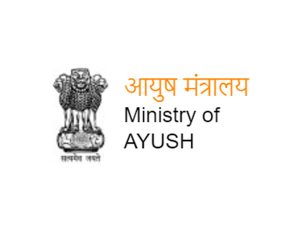Is Hypertension always bad?
13 min read
Hypertension, or high blood pressure, is a risk factor for several health conditions, including cardiovascular problems, diabetes, and other metabolic issues. However, is high blood pressure always a cause for concern? New findings question that assumption.
Having high blood pressure may sometimes have a protective effect.
Up to 75 million adults in the United States have high blood pressure, according to the Centers for Disease Control and Prevention (CDC).
What is high blood pressure? Well, it is hard to accurately answer that question, as specialists are still debating what counts as normal blood pressure.
Different organizations currently offer different guidelines on high blood pressure.
For instance, the National Heart, Lung, and Blood Institute explain that, among adults, hypertension is a “consistent systolic reading of 140 mm Hg[millimiters of mercury] or higher.”
However, the American Heart Association (AHA) suggest that hypertension occurs when a person has a systolic blood pressure of 130 mm Hg or above. Meanwhile, the CDC consider people with systolic blood pressure of 120–139 mm Hg as being only “at risk” of hypertension.
Generally speaking, doctors advise their patients — especially older adults — to keep monitoring their own blood pressure and keep it in check.
This is to make sure that it does not reach the threshold for hypertension, which many healthcare professionals consider to be a risk factor for heart disease and stroke, among other things.
Now, however, a study that researchers at Charité – Universitätsmedizin Berlin in Germany carried out suggests that some older people may not face other health problems if they have high blood pressure.
In fact, the researchers note, some people in their 80s may even see some benefits.
Moving ‘away from a blanket approach’
The new study — the findings of which appear in the European Heart Journal — looked at a cohort of 1,628 women and men with a mean age of 81 years. All were 70 or older when they joined in 2009, and they were all following antihypertensive treatments.
Researchers collected data about the participants’ health status through the Berlin Initiative Study, a Charité research project. They questioned participants every 2 years and assessed their blood pressure, among other health measurements.
At the 6-year mark, the investigators performed a statistical analysis to find out how blood pressure could affect a person’s mortality risk. They also adjusted for potential confounding factors, such as sex, lifestyle choices, body mass index (BMI), and how many drugs for high blood pressure each person took.
They saw that people aged 80 and over who had a lower blood pressure — of 140/90 mm Hg or under — actually had a 40 percent higher mortality risk than peers with blood pressure exceeding those thresholds.
Even people who’d already had a stroke or a heart attack presented a similar link between blood pressure levels and mortality risk.
The team also emphasizes that people with blood pressure lower than 140/90 mm Hg had a 61 percent higher risk of death than those whose blood pressure remained high in spite of their antihypertensive drug regimen.
“Our results show clearly that, within these groups of patients, antihypertensive treatment should be adjusted based on the needs of the individual,” notes first study author Dr. Antonios Douros.
“We should move away from the blanket approach of applying the recommendations of professional associations to all groups of patients.”
Dr. Antonios Douros says:
In the future, the scientists aim to have a more in-depth look at blood pressure-lowering medication to establish when it is actually most likely to help.
“As a next step, we want to study which groups of patients actually benefit from antihypertensive treatment,” concludes study co-author Prof. Elke Schäffner.
What is a normal blood pressure?
Blood pressure is essential to life because it forces the blood around the body, delivering all the nutrients it needs.
Source :Medical News Today






